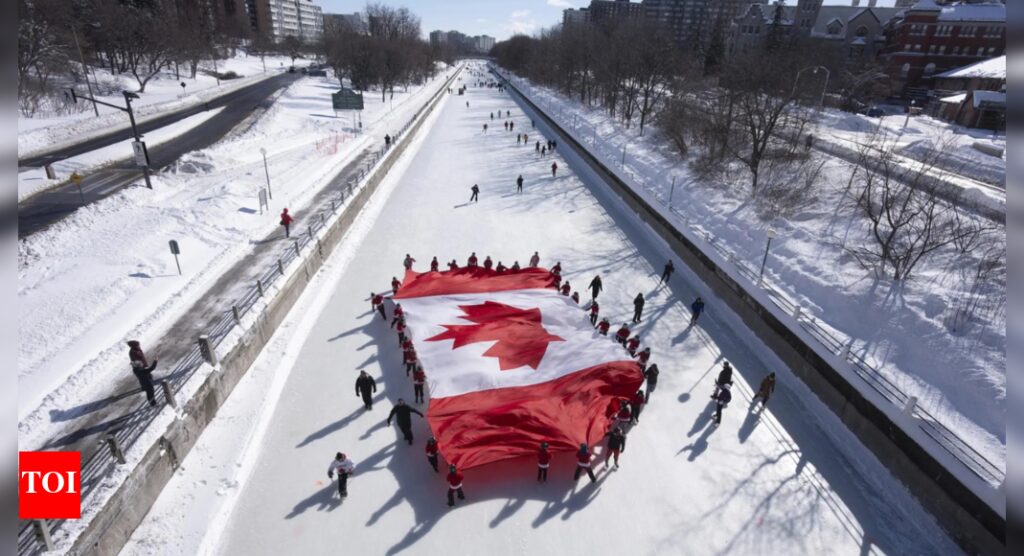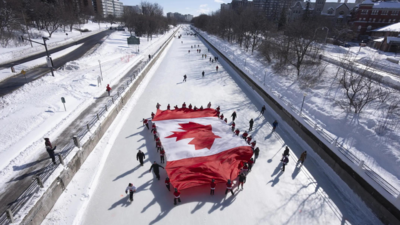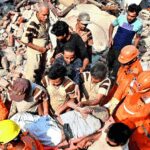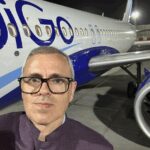As the clock ticks towards Canada’s 45th federal election on April 28, something subtle but significant is stirring within its Indian diaspora. For decades, Punjabi-Canadian politicians have been the face of South Asian political engagement in the country – cabinet ministers, riding champions, national party politicians. But this year, a new voice is entering the fray.
From Brampton to Calgary, four Gujarati-origin candidates – mostly first-generation immigrants – are contesting parliamentary seats for the first time. While Punjabi political presence remains dominant – seasoned, visible and electorally strategic – a new layer of representation is being built by Gujarati candidates who have spent decades laying the groundwork in business and social leadership.
Jayesh Brahmbhatt walks the Brampton Chinguacousy neighbourhoods with a certain self-assuredness. A civil engineer-turned-real estate developer, Brahmbhatt arrived in Canada from Gujarat in 2001. His journey is one many immigrants will recognise: starting with convenience stores, moving into property, and eventually building a reputation in realty. Now, he is contesting on a People’s Party ticket, he is running for parliament in a country he has called home for just over two decades. “We stand for freedom, responsibility, fairness and respect for all, and somewhere it resonates with me,” he says. “I speak to a lot of people, and they seek change from this election.”
The decision to enter politics, for Brahmbhatt and others like him, is not simply about ideology. “Parties are now identifying Indians as an important community in politics, and sub-groups such as Gujaratis are making the most of this opportunity to be represented and be heard,” he says.
He is one of four Gujarati-origin candidates contesting this election.
The other one, Sunjiv Raval, is standing from Calgary Midnapore on a Liberal ticket. He was born in Tanzania and has lived in Calgary for over 20 years. Don Patel, a successful realtor from Anand, was briefly the Conservative Party’s pick for Etobicoke North before being dropped earlier this week, along with three other candidates. But Ashok Patel and Minesh Patel are both contesting as independents from Edmonton Sherwood and Calgary Skyview, respectively. None of them are political insiders. What binds them is a shared generational arc: immigrants who first built businesses, then communities, and now seek to shape policy.
Hemant Shah, director of international trade at the Ottawa-based Overseas Friends of India Canada (OFIC), has seen this shift coming. A long-time Winnipeg resident and respected community voice, Shah places the moment in perspective. “Canada is home to more than 1 lakh Gujaratis,” he says. “The community is present in almost all major cities, but more so in Toronto, Montreal, Ottawa, Calgary and Vancouver. Many came to the country as immigrants whereas many more arrived as students and settled here. I have been in Canada for over four decades now, and in this election, we are perhaps witnessing the highest number of candidates of Gujarati origin. Irrespective of their win, it is a significant step in ensuring representation of the community, which is the second largest after Punjabis.”
Sunjiv Raval, who owns a successful chain of stores and has been involved with Indian community groups, believes the Gujarati voice in politics was overdue. “We are fighting on issues faced by the middle class, who have been demanding better infrastructure and sports facilities, affordable housing and work opportunities for all,” he says. “The country needs immigrants, but there must be a balance. We hope to restore it with the right policies. We have a voice now.”
That diversification is not happening in a vacuum. The Punjabi political presence remains a dominant force in this election too. In Brampton, Mississauga, Surrey and Vancouver, many Indian-origin MPs are not first-timers, but incumbents defending their turf. These include Jagmeet Singh, leader of the New Democratic Party and the first Sikh head of a federal party; Anita Anand, minister of innovation, science and industry; and Kamal Khera, minister of health. Anand, the daughter of Indian immigrant doctors, is one of the few figures from the previous Justin Trudeau cabinet to retain a ministerial role in PM Mark Carney’s lineup. Khera, contesting again from Brampton West, represents a newer generation of Punjabi-Canadian leadership.
Another returning figure is Sukh Dhaliwal, Liberal MP for Surrey-Newton, who also served as MP for Newton-North Delta from 2006 to 2011. An engineer, land surveyor and businessman, Dhaliwal has held various community positions in Surrey before entering parliament. In Waterloo, Bardish Chagger is once again in the race. A former minister of diversity and inclusion and youth, she worked extensively with the Kitchener-Waterloo Multicultural Centre and was first elected in 2015.
While Gujarati candidates are at the beginning of their political journey, the Punjabi contingent is navigating realities of incumbency. The contrast is striking, but both groups are converging on shared public concerns: affordability, jobs, and immigration reform. And yet, for all the policy common ground, there’s a deeper shift underway – a reframing of who gets to represent the Indian-origin voice in Canada.
Political pundits have drawn parallels with the US, where Indian Americans of Gujarati origin such as Raj Shah (White House spokesperson in Trump’s first term) and Kashyap ‘Kash’ Patel – the FBI director – have moved from advisory roles to executive power. Canada, long dominated by Punjabi-Canadian figures in its diaspora politics, now appears poised to follow a broader, more plural arc.







